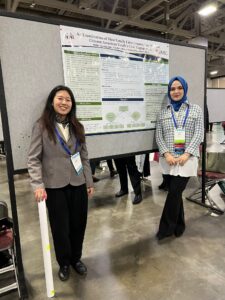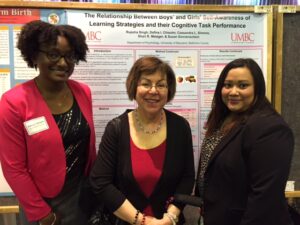


The Applied Developmental Psychology program reflects the intersection of developmental psychology and applied science by considering questions of developmental import within the social context of children’s everyday lives. Graduates of the program will have the knowledge and skill to conduct research and work in settings focused on child, family, and school well-being, particularly in inner-city, lower-income, and cultural minority and cross-cultural contexts.
The program has three concentrations, with flexibility within and across concentrations to construct a program experience that combines broad exposure to foundational courses and to specialized courses and experiences tailored to individual students’ career goals and interests:
The Early Development/Early Intervention concentration focuses on genetic, biological and environmental factors that impede or promote development in the early years and on established and innovative intervention approaches for infants and young children at risk.
The Socioemotional Development of Children concentration focuses on the interactions between individual, peer, and parenting/family factors in the social-emotional development of children in different socio-cultural contexts.
The Educational Contexts of Development concentration focuses on the cognitive, social, and motivational factors that affect children’s learning within the contexts of schools, families, cultures, and neighborhoods.

Research conducted by ADP faculty addresses many important issues in the development of children and families, for interventions to promote that development, and about the cultural context within which that development occurs. The following provides a sample of these issues, but please check each faculty’s webpage to learn about their research activities and interests.
Dr. Cheah examines how parenting and culture influence children and adolescent social thinking and emotional health, including the influence of culture on parenting and the impact of racism on youth development.
Dr. Cengher examines language development in children with autism spectrum disorder and attempts to promote that development.
Dr. Godwin examines how the design of instructional materials and aspects of the learning environment can either promote or interfere with children’s attention and learning.
Dr. Sonnenschein focuses on how the home environment influences academic success in young children.
Dr. Singh investigates language development in infancy, including how socioeconomic status influences language development and how bilingualism impacts other aspects of cognitive development.
Dr. Schultz directs and evaluates the UMBC Home Visiting Training Center, which trains home visitors to visit with pregnant mothers and mothers of newborns to support healthy infant and toddler development.
Dr. Borrero examines the effectiveness of methodological procedures in applied behavior analysis interventions.
Dr. Sun uses advanced quantitative methods to examine factors and mechanisms that broaden participation in Science, Technology, Engineering, and Math (STEM).
The ADP Graduate Program Director is Dr. David Schultz.
For more information about the ADP program please contact Dr. Schultz at dschultz@umbc.edu